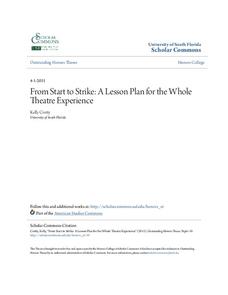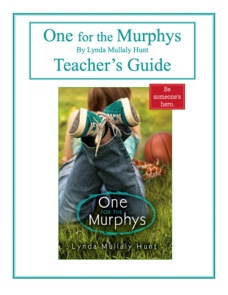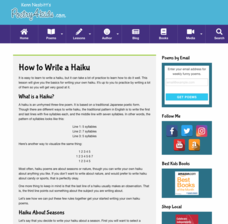American Psychological Association
Childhood Obesity
The United States leads the world in the percentage of obese adults and children. Why? What can be done about the problem? High school psychology classes adopt a problem-focused approach to investigating childhood obesity and then...
American Psychological Association
Get Your Class Back! Free Your Class from Cell Phones in 5 Minutes
Welcome to a class in Cell Phones Anonymous! Rid students of their addiction with an easy, positive reinforcement, two-step program: turn them off and put them in a box at the front of the classroom. Each day they participate, they...
Civil Rights Movement Veterans
Timeline of Events: 1960’s Civil Rights Movement of St. Augustine, Florida
A timeline can be a powerful learning tool because it reveals a pattern in events. While few would consider St. Augustine, Florida a hotbed of the 1960s Civil Rights Movement, a selection of background information and a timeline of...
University of California
Principles vs. Practices
Have you ever wondered what your own World Order would look like? Scholars use primary and secondary documents as well as video clips to investigate and analyze the Cold War. Using the sources, the principles and practices of nations...
Kenan Fellows
Unit 1: Introduction to Biotechnology
Biotechnology is big! Introduce the uses of biotechnology to science scholars with a fascinating, fact-filled unit. The first installment in a series of four biotechnology units covers the role biotechnology plays in human and...
Appalachian State University
The Fault in Our Stars: A Movie Study Guide for Eighth Grade Language Arts, Social Studies, and Science
How would you spend your last days with a loved one? The movie guide for The Fault in Our Stars prompts scholars to compare important scenes from the novel to the film and contains background information about the author, guided...
Constitutional Rights Foundation
Rachel Carson and the Modern Environmental Movement
Scholars analyze the environmental movement started in the 1960s. Through excerpts from Rachel Carson's books as well as diary entries, they take a look at the reason for the modern movement to save the planet and then create final...
Honors College at Scholar Commons
From Start to Strike: A Lesson Plan for the Whole Theatre Experience
Introduce young thespians to all aspects of the theater. A syllabus for a one-semester drama course provides lessons that take learners from the history of drama to the many facets of play production.
Smithsonian Institution
World War I
How did World War I effect the United States' status as a world power? Pupils examine a website to learn many interesting facts about American involvement during World War I. They read passages and interact with artifacts in an online...
Planet PDF
The Jungle Book
Being raised by wolves has its advantages. An eBook gives readers the chance to experience Rudyard Kipling's classic novel The Jungle Book, a story about a boy named Mowgli who wants to stay with the wolves that raised him instead of...
Spreading Gratitude Rocks
A Note of Gratitude
Gertrude Stein once said, "Silent gratitude isn't much use to anyone." Learners break their silence by engaging in discussion and making lists of what makes them grateful. Next, pupils write and illustrate a thank you letter to a chosen...
Biology Junction
Origin of Life
Aristotle explained the idea of spontaneous generation, a concept which lasted almost 2,000 years before scientists proved it wrong. Scholars learn about the history of our understanding of the origins of life. They read examples of...
Penguin Books
One for the Murphys by Lynda Mullaly Hunt - Teacher's Guide
Children in foster care face a lot of uncertainty in their lives. A guide for the novel One for the Murphys introduces a main character, Carley, who is thrust into the foster care system. Chapter-by-chapter questions cover key details in...
Poetry4kids
How to Write a Haiku
A haiku is the focus of an activity that challenges scholars to draft an original poem. Authors discover the origin and components of a haiku, read three example poems, then follow six steps to compose their own.
Poetry4kids
How to Start a Poetry Journal
Practice makes proficient! Using a journal of their choice, authors organize pages, then begin their writing journey of on-going writing practice in which they compose all poetic forms including diamante, limerick, free verse, and more!
Poetry4kids
Evoking the Senses in a Poem
Budding poets choose a topic for a sensory-filled poem. Authors describe that topic using detailed language based on the five senses. Then, switch the senses to create a fanciful poem intended to add a touch of fun to the objective.
ProCon
Daylight Savings Time
An entomologist named Geroge Vernon Hudson is credited with proposing Daylight Saving Time (DST) so he could better study his insects. Using the informative website, scholars read a brief introduction to the topic and then explore the...
Reading Vine
Confucius: The Most Famous Teacher in China
Introduce young philosophers to the wisdom of China's most famous thinkers with a short bio. The reading comprehension passage includes an answer key.
Open Colleges
Your Brain Map: Strategies for Accelerated Learning
The brain is a complex organ with many different structures and functions. An interactive diagram allows learners to explore the different structures while pop-ups describe their functions. Secondary interactives show the structures of...
Roy Rosenzweig Center for History and New Media
American Indians and their Environment
People could take a page in ingenuity and survival from the Powhatans. Deer skins became clothes, and the members of the Native American group farmed the rich Virginia soil and hunted in its forests for food. Using images of artifacts...
American Museum of Natural History
Tornadoes Spinning Thunderstorms
Tornado winds can reach more than 200 miles per hour. Learners explore wind speeds and more characteristics of tornadoes with an online lesson. They learn how tornadoes form and how scientists attempt to predict them. Can be used as an...
American Museum of Natural History
Volcanoes Magma Rising
Get ready for an explosive lesson! Learners read and interact with an online lesson describing the characteristics of volcanoes. They study specific historical volcanoes as well as the science of volcanic eruptions using animations and...
American Museum of Natural History
What's This?: Mythic Creatures
Fantastic beasts, and where to find them, are featured in a resource that offers images of real animals that just might have given rise to some of mythic creatures of legend.
American Museum of Natural History
The Ancient City of Petra
Anyone who has seen Indiana Jones and the Last Crusade will recognize the entrance to the Nabataean city of Petra. Young archaeologists don't need horses or camels to travel through the Sig and tour this fascinating city, however. With...
Other popular searches
- Spring Festival
- Springboard
- Spring Acrostic
- Spring Art
- Spring Time
- Spring Bulletin Board Ideas
- Spring Haiku Poetry
- Spring Art Lesson Plans
- Spring Lesson Plans
- Spring Theme
- Spring Lessons
- Writing Activities Spring

























